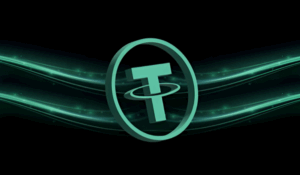How Blockchain Empowers the Global Creator Economy Revolution

The Rise of blockchain in Empowering the Creator Economy
The Shift Towards Digital Content Creation
When envisioning bloggers or influencers, many might picture a young, successful individual from Los Angeles. However, the reality paints a different picture. In the Global South, a growing number of young people are opting for content creation and digital freelancing instead of conventional career paths. Notably, cities like Lagos, Jakarta, São Paulo, and Mumbai are witnessing remarkable growth in the creator economy. By early 2025, the creator economy in Africa alone is projected to be valued at $5 billion, with expectations to soar to $30 billion by 2032.
How blockchain Facilitates Financial Transactions for Creators
What is driving this transformation? Equipped with smartphones, creators from developing nations are carving out their paths to financial independence, establishing a new class of digital workers. However, global reach is futile without reliable payment methods, a challenge faced by creators worldwide.
At the heart of this evolution is blockchain technology.
Addressing Financial Challenges with blockchain
Consider a blogger in Nairobi who has partnered with a French brand for an advertisement. How can they receive payment? Traditional banks often take weeks to process transactions, especially for larger sums, and international payments can be even more cumbersome. Regulatory bodies frequently scrutinize creators, viewing them as high-risk due to their unpredictable income. If a transaction is flagged as suspicious, it could jeopardize the creator’s earnings.
Moreover, many creators in developing countries struggle to access global payment platforms like PayPal or Stripe. Even when available, the volatility of local currencies can complicate exchange rates, making it difficult for creators to receive fair compensation for their work.
In essence, the conventional financial system is ill-equipped to support a 22-year-old influencer seeking payment for their content. In contrast, blockchain offers a solution.
blockchain as a Reliable Financial Infrastructure
For creators in the Global South, blockchain technology serves as a dependable infrastructure for receiving payments. It provides a streamlined, hassle-free method of financial transactions, moving beyond mere hype.
blockchain transactions are not limited to volatile cryptocurrencies; stablecoins, which are pegged to fiat currencies like the dollar, offer a more stable alternative. This stability ensures that the value of a creator’s earnings does not diminish over time, preserving the worth of their work.
Additionally, blockchain enables low-cost transactions. Traditional banks often impose high fees for international transfers, while certain cryptocurrencies can facilitate nearly fee-free transactions. The speed of blockchain transactions is another advantage, with funds being transferred in seconds, unlike the lengthy processing times of traditional banking systems.
With blockchain-based currencies, creators can bypass the challenges of opening bank accounts. All that is needed is a smartphone with internet access, which is particularly beneficial for those in remote areas lacking banking infrastructure. This technology expands financial access for creators who have historically been marginalized.
Consolidating Income with blockchain Wallets
blockchain also addresses the issue of fragmented income streams. Digital wallets can function as bank accounts for creators, allowing them to manage their earnings from various sources—be it sponsored content or freelance projects—in one centralized location. This flexibility empowers creators to decide how to handle their funds, whether to keep them in cryptocurrency, convert them to local currency, or use them for online services.
Integrating blockchain with Fintech Solutions
As blockchain technology becomes more prevalent, fintech companies are adapting to incorporate it into their services. The integration of blockchain can enhance money management tools, enabling creators to consolidate payments and convert cryptocurrency to local currency seamlessly. This capability allows creators to budget for future expenses, granting them greater control over their financial situations—something traditional banks have often failed to provide.
A user-friendly platform that combines all these features could revolutionize how creators manage their finances, eliminating the need for intermediaries. Fintech companies that recognize this potential are already attracting a growing customer base.
Even in unrelated sectors like social media, the relevance of blockchain is becoming evident. Recent announcements regarding trading features on platforms like X signal a shift towards becoming comprehensive superapps.
This evolution necessitates a change in perspective. blockchain should not be viewed as a standalone industry but rather as a foundational utility that empowers millions of unbanked individuals in developing nations, including creators, to earn a living from their talents without relying on traditional banking systems.






